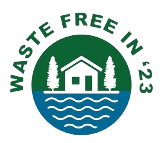Recycling Nutrients from Dry Toilet Substrates – An Easy Comprehensive Summary | (Bleuler et al., 2020)
Introduction
Modern agriculture depends on synthetic fertilizers, but these are expensive to produce and can harm the environment. Meanwhile, human waste contains valuable nutrients like nitrogen (N) and phosphorus (P), which are essential for plant growth. This study explores a sustainable way to recycle nutrients by turning dry toilet waste into biochar—a charcoal-like soil amendment created through pyrolysis (heating organic material in low oxygen).
The researchers examined whether biochar made from dry toilet waste could improve soil quality, especially when combined with urine to enhance its nitrogen content. Their results show that this eco-friendly method can improve soil fertility, reduce waste, and provide an alternative to chemical fertilizers.
How Biochar from Dry Toilet Waste Works
- Human waste from dry toilets is collected and dried.
- It is converted into biochar through pyrolysis (heating at high temperatures without oxygen).
- The biochar is then mixed with urine, which contains high levels of nitrogen.
- This enriched biochar is added to soil, where it helps plants grow by improving nutrient availability.
Key Findings: Economic & Environmental Benefits
1. Increased Soil Fertility and Crop Growth
- Biochar alone improved soil structure and water retention.
- Adding urine boosted nitrogen levels, making it even more effective as a fertilizer.
- This nutrient-rich biochar helped plants grow better, providing an alternative to synthetic fertilizers.
2. A Cost-Effective and Sustainable Fertilizer
- Biochar production uses waste that would otherwise be discarded, reducing sanitation issues.
- Farmers could replace expensive chemical fertilizers with this natural, locally sourced alternative.
- The long-lasting effects of biochar in soil mean less frequent fertilizer application, saving money over time.
3. Environmental Benefits: Waste Recycling & Carbon Storage
- Recycling human waste reduces pollution and prevents harmful runoff into water sources.
- Biochar stores carbon in soil, reducing CO₂ emissions and slowing climate change.
- This approach creates a closed-loop system, where waste is repurposed instead of discarded.
Challenges & Considerations
- Social acceptance: Using human waste for farming may require education to increase public support.
- Storage and application: Proper handling of urine and biochar is needed to maximize effectiveness and prevent contamination.
- Scaling up: More research is needed to explore how this method can be expanded for widespread use.
Conclusion: A Smart, Eco-Friendly Alternative to Synthetic Fertilizers
This study shows that biochar made from dry toilet waste, especially when combined with urine, is a safe, effective, and sustainable fertilizer. By improving soil quality, reducing waste, and lowering farming costs, this method offers a promising alternative to chemical fertilizers.
With proper implementation, this approach could support sustainable agriculture, particularly in regions with limited access to synthetic fertilizers.
Read the Full Study:
Bleuler, M., et al. (2020). Pyrolysis of Dry Toilet Substrate as a Means of Nutrient Recycling in Agricultural Systems: Potential Risks and Benefits. Journal of Analytical and Applied Pyrolysis. https://link.springer.com/article/10.1007/s12649-020-01220-0
Got questions?
